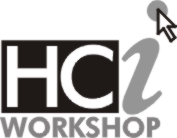|
Faculty |
|
The workshop will be conducted by Ramesh Krishnan,
MphasiS and Prof. Anirudha Joshi, IIT Bombay.
Ramesh Krishnan is an Information Architect with
MphasiS. He also manages their Usability Engineering Team. Having worked in
developing ‘usable’ solutions for MphasiS’ clients, he has in-depth
knowledge in the finance domain. He recently conducted a workshop on
Usability Engineering for the Software Exporters Association of Sri Lanka.
His experience spans a variety of industries which lends him a good
understanding of the business and IT systems related to banking, e-learning,
production-planning, media, retailing, sales and distribution. Ramesh is an
alumnus of IIT Madras and IIM Calcutta.
Anirudha Joshi is a faculty member in the Industrial
Design Centre, IIT Bombay. He teaches and conducts research in the field of
HCI. For many years now, Anirudha has been conducting workshops on HCI for
IT professionals. He has also been a consultant to several IT companies on
HCI projects. His area of research interest is interaction design for needs
of developing countries like India and correlation between software
engineering and HCI. Before joining IIT Bombay, Anirudha worked in the field
of interaction design for software, multimedia and the Internet. Anirudha
has a BTech in Electrical Engineering and a Masters in Design in Visual
Communication from IIT Bombay. |
|
|
Fees |
|
|
Working Professionals |
Educational Institutes |
|
Early (Closed on Sept. 14) |
Rs. 6,000 |
Rs. 3,000 |
Late
(till Oct. 5) |
Rs. 8,000 |
Rs. 4,000 |
|
Walk-in |
Rs. 10,000 |
Rs. 5,000 |
The fees include participant material, lunch and
refreshments. Accommodation is not included, but may be available to
limited number of people in the IIT Bombay guesthouse. To attend the
workshop, please send a cheque / DD in favour of ‘Registrar IIT Bombay,
CEP account’ to: Anirudha Joshi, Industrial Design Centre, IIT Bombay,
Mumbai 400 076. Please note that TDS need not be deducted towards
payments made to IIT Bombay. For further information please contact
anirudha@iitb.ac.in |
|
